Introduction
Dry mouth
Dry mouth, also known as xerostomia, is a common condition that affects a significant number of people. It is characterized by a subjective feeling of oral dryness, which can be caused by various factors such as certain medications, salivary gland disorders, radiation therapy, and systemic diseases like diabetes. The discomfort of dry mouth not only impacts the quality of life but also poses potential risks to oral health, including an increased risk of dental caries, oral infections, and problems with speech and swallowing.
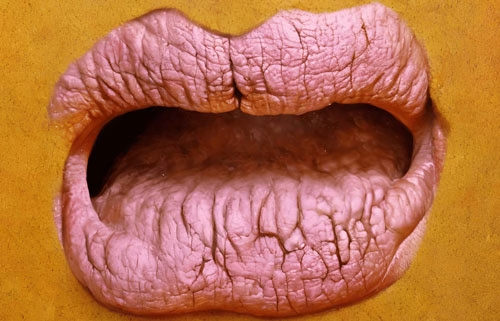
In the pursuit of relieving dry mouth symptoms, many products have emerged on the market. Among them, dry mouth products containing xylitol have gained considerable attention. Xylitol is a natural sweetener that has been recognized for its potential benefits in oral health. This article aims to explore in – depth whether the use of dry mouth products with xylitol is a viable and effective solution for those suffering from dry mouth.
Xylitol
Xylitol is a sugar alcohol that occurs naturally in many fruits and vegetables. It has a similar sweetness to sucrose (table sugar) but with a lower glycemic index. It can be extracted from sources such as birch bark, corn cobs, and sugarcane bagasse.
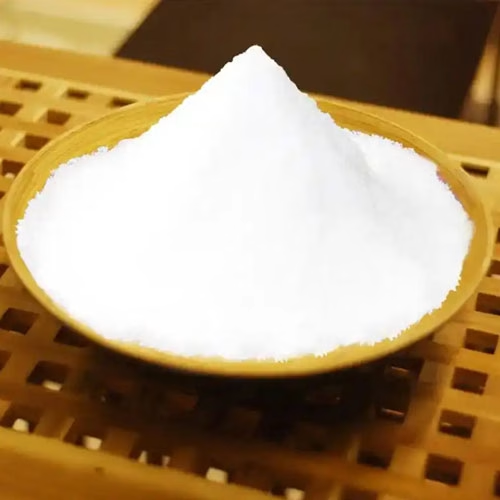
One of the key features of xylitol is its ability to be metabolized differently from regular sugars. It does not require insulin for metabolism, making it a suitable sweetener for people with diabetes. Moreover, xylitol has been shown to have antibacterial properties, especially against Streptococcus mutans, a major bacterium responsible for dental caries. When xylitol is present in the oral cavity, it can interfere with the ability of S. mutans to adhere to tooth surfaces and produce acids that demineralize teeth.
For more details, please read “what is xylitol”.
How Do Dry Mouth Products with Xylitol Work?
Dry mouth products containing xylitol work in multiple ways to alleviate the symptoms of dry mouth.
Moisturizing Effect
Firstly, these products often contain ingredients that can directly moisten the oral cavity. Xylitol – based lozenges, sprays, and gels can provide a temporary soothing and moisturizing effect. The physical presence of these products in the mouth helps to create a more humid environment, reducing the feeling of dryness. For example, xylitol – containing sprays can be sprayed directly into the mouth, quickly delivering a burst of moisture that coats the oral mucosa.
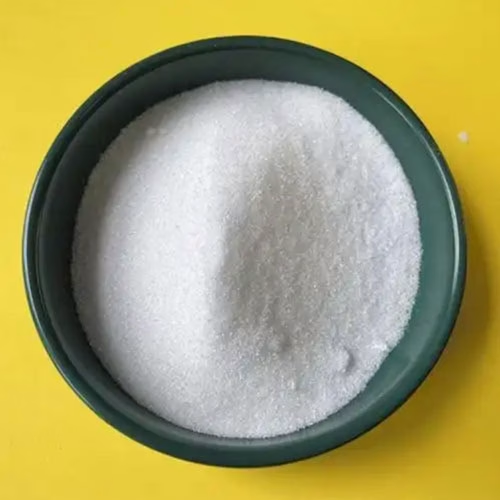
Stimulating Saliva Production
Secondly, xylitol can stimulate saliva production to some extent. Although the exact mechanism is not fully understood, it is believed that the taste and texture of xylitol can trigger nerve receptors in the mouth, which then send signals to the salivary glands to produce more saliva. Saliva is crucial for maintaining oral health as it helps to wash away food particles, neutralize acids, and provide essential minerals for tooth remineralization. By increasing saliva flow, xylitol – based products can help to restore the normal oral environment that has been disrupted by dry mouth.
Antibacterial Action
In addition to moisturizing and stimulating saliva, the antibacterial properties of xylitol play an important role in dry mouth management. As mentioned earlier, dry mouth increases the risk of oral infections due to the reduced protective function of saliva. Xylitol’s ability to inhibit the growth of harmful bacteria like S. mutans helps to prevent the development of dental caries and other oral infections. This is especially beneficial for dry – mouth patients who are already more vulnerable to such problems.
The Benefits of Using Dry Mouth Products with Xylitol
Oral Health Benefits
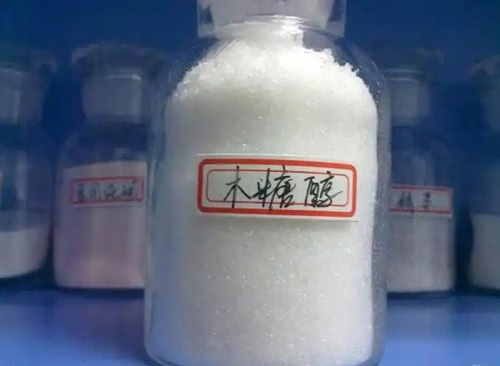
Reduced Risk of Dental Caries: Clinical studies have consistently shown that the use of xylitol – containing products can significantly reduce the incidence of dental caries. A long – term study conducted on children in Finland found that those who regularly consumed xylitol – containing chewing gum had a much lower rate of new cavities compared to the control group. In the context of dry mouth, where the risk of tooth decay is already elevated, the antibacterial and remineralization – promoting effects of xylitol can be a game – changer.
Improved Gum Health: Xylitol can also contribute to better gum health. By reducing the presence of harmful bacteria in the mouth, it helps to prevent the development of gingivitis and periodontal diseases. People with dry mouth often experience gum problems due to the accumulation of plaque and bacteria, and xylitol – based products can help to mitigate these issues.
Overall Well-being
Enhanced Comfort: The most immediate benefit of using dry mouth products with xylitol is the relief of the uncomfortable feeling of dryness. This can improve the quality of life for patients, making it easier for them to eat, drink, speak, and sleep. For example, a person who has difficulty swallowing due to dry mouth may find that using a xylitol – containing lozenge before meals can make the process more comfortable.

Improved Taste Perception: Dry mouth can dull the sense of taste, making food less enjoyable. By improving oral moisture and oral health, xylitol – based products can help to restore normal taste perception. This can lead to a more satisfying eating experience and encourage better nutrition intake.
Clinical Studies and Evidence
Numerous clinical studies have investigated the effectiveness of xylitol-containing dry mouth products.
A study published in the Journal of Dental Research compared the effects of a xylitol – containing oral spray with a placebo spray on patients with dry mouth caused by radiotherapy. The results showed that the xylitol – treated group had a significant improvement in subjective dry mouth symptoms, as well as an increase in salivary flow rate. Another randomized controlled trial focused on the use of xylitol – containing chewing gum in patients with dry mouth due to Sjogren’s syndrome. The study found that regular chewing of xylitol gum not only improved oral dryness but also reduced the levels of harmful bacteria in the mouth.

Meta – analyses of multiple studies have also been conducted. These comprehensive reviews have further supported the positive effects of xylitol in managing dry mouth symptoms, both in terms of short – term relief and long – term oral health benefits.
Types of Dry Mouth Products with Xylitol on the Market
Lozenges: Xylitol lozenges are another common option. They dissolve slowly in the mouth, providing a continuous release of xylitol and moisture. Some lozenges also contain additional ingredients like menthol for a cooling and refreshing effect.
Chewing Gum: Xylitol – containing chewing gum is one of the most popular products. It is convenient to use and can be chewed throughout the day to stimulate saliva production. Many brands offer sugar – free chewing gum with xylitol as the main sweetener.
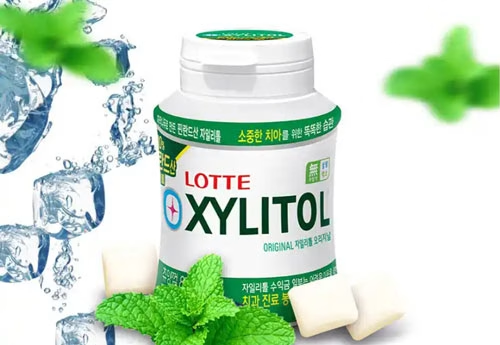
Oral Sprays: Oral sprays are designed for quick and easy application. They can be sprayed directly into the mouth whenever the feeling of dryness occurs. Some sprays are formulated to be used multiple times a day and are often small and portable, making them suitable for on – the – go use.
Gels and Mouthwashes: Xylitol – based gels can be applied directly to the oral mucosa, providing a long – lasting moisturizing effect. Mouthwashes with xylitol can help to clean the mouth, freshen breath, and promote oral health. However, it should be noted that some mouthwashes may contain alcohol, which can potentially exacerbate dry mouth symptoms, so it is important to choose alcohol – free options.
Potential Drawbacks and Considerations
Digestive Issues: Although xylitol is generally well – tolerated, in large amounts, it can cause digestive problems such as bloating, gas, and diarrhea. This is because the human body has a limited ability to absorb xylitol, and excessive intake can lead to an osmotic effect in the intestines. When using xylitol – containing dry mouth products, it is important to follow the recommended dosage to avoid these potential digestive issues.

Cost: Some xylitol – based dry mouth products may be more expensive than their non – xylitol counterparts. This can be a barrier for some patients, especially those who need to use these products regularly. However, considering the long – term oral health benefits, the investment may be worthwhile.
Allergic Reactions: In rare cases, some individuals may be allergic to xylitol. Allergic reactions can range from mild symptoms like oral itching and swelling to more severe reactions such as difficulty breathing. If a person experiences any unusual symptoms after using a xylitol – containing product, they should stop using it immediately and seek medical advice.
Conclusion
The use of dry mouth products with xylitol offers a promising solution for people suffering from dry mouth. With its multiple benefits, including moisturizing the oral cavity, stimulating saliva production, and promoting oral health, xylitol has proven to be an effective ingredient in managing dry mouth symptoms. Clinical studies have provided strong evidence for its effectiveness, and a variety of products are available on the market to meet different needs.
However, like any product, there are also potential drawbacks and considerations that users should be aware of, such as digestive issues, cost, and the possibility of allergic reactions. Overall, for most people with dry mouth, xylitol – containing products can be a valuable addition to their oral care routine. It is advisable for patients to consult their healthcare providers or dentists before starting to use these products, especially if they have underlying health conditions or concerns. As research continues to advance, we can expect to see even more innovative and effective xylitol – based dry mouth products in the future, further improving the lives of those affected by this common condition.

